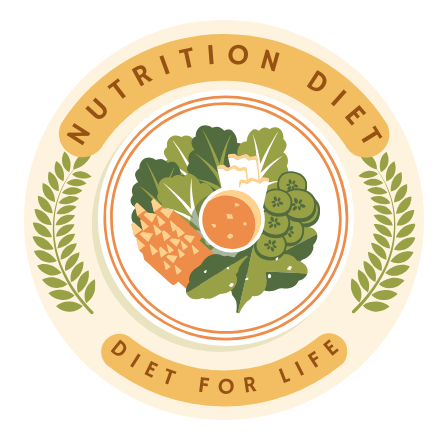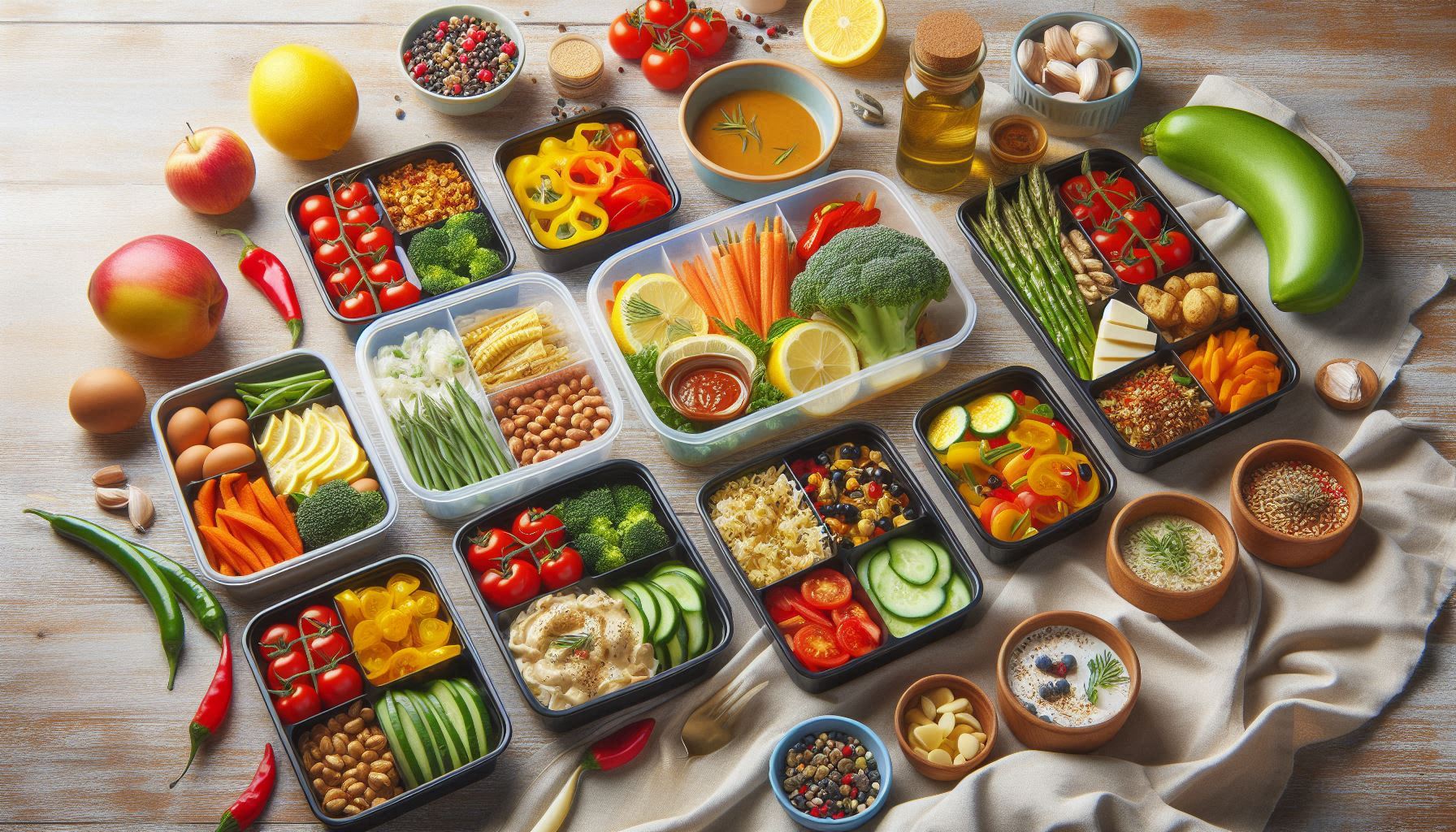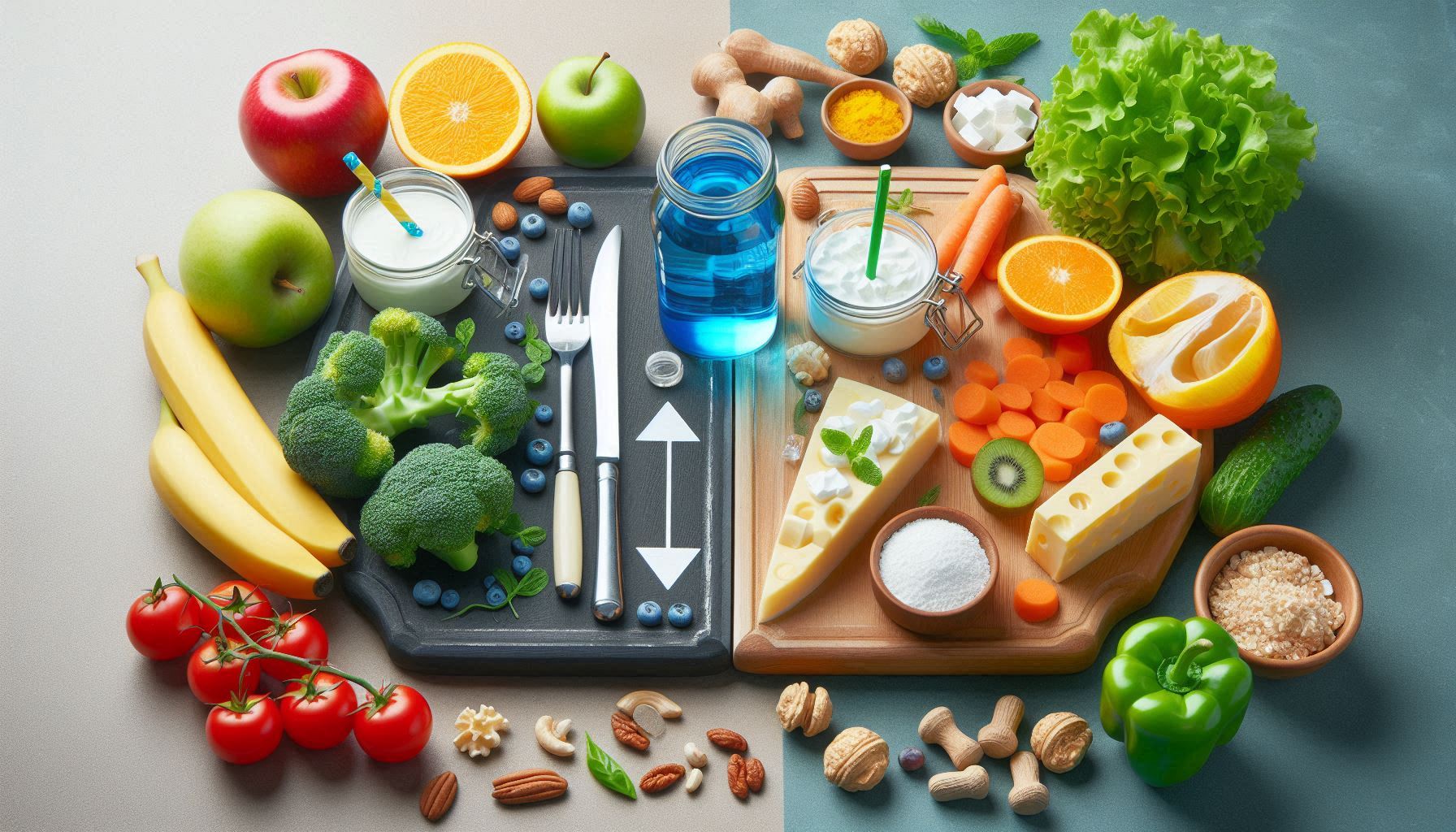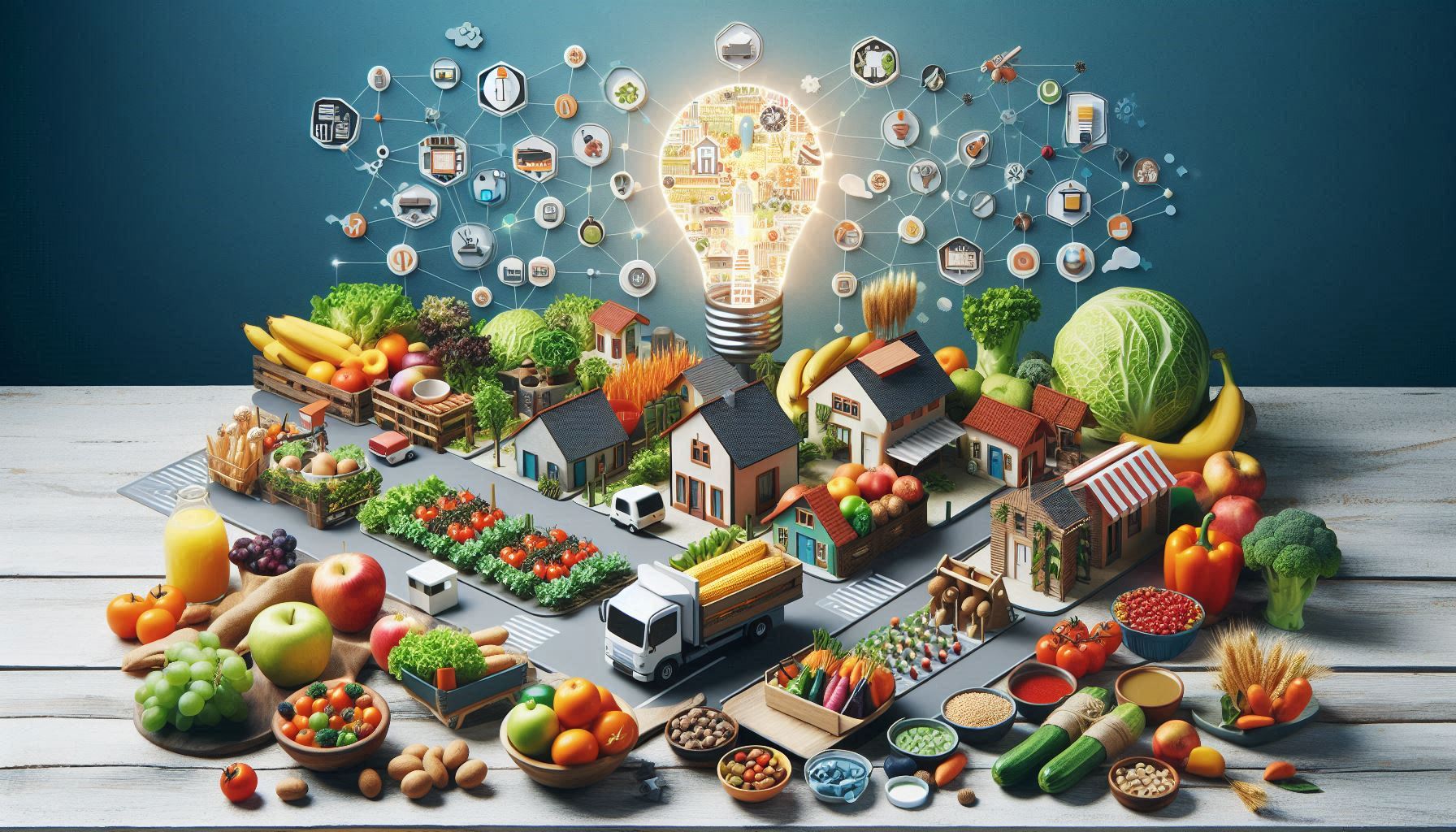Meal prepping has evolved beyond being a technique used by bodybuilders, fitness enthusiasts, or busy parents. It has become a mainstream lifestyle choice for anyone looking to optimize their time, health, and budget. As modern life becomes increasingly hectic, many people are turning to meal prepping as a solution to save time, money, and energy. Whether your goal is to eat healthier, avoid fast food, reduce food waste, or simply simplify your routine, meal prepping offers significant benefits. Meal prepping involves preparing meals or ingredients in advance, typically for the upcoming week, and storing them in portioned containers. By dedicating a few hours to meal prep on a free day, you can enjoy homemade, nutritious meals without the stress of daily cooking. This practice not only helps you stick to a healthy eating plan but also prevents the temptation of unhealthy takeout or processed foods.
The benefits of meal prepping are numerous. It saves time during the week, allowing you to focus on other important activities. It helps with portion control, making it easier to manage your calorie intake, and it also reduces the likelihood of food waste by using ingredients before they spoil. Moreover, meal prepping is budget-friendly, as buying ingredients in bulk and cooking in large quantities can reduce grocery costs. In this guide, we will explore the growing trend of meal prepping, examining its advantages and providing practical advice on how to get started. We will also discuss how to maintain your meal prepping efforts over the long term, ensuring that it becomes a sustainable and rewarding habit in your daily routine.
Understanding Meal Prepping: A Detailed Overview
What Is Meal Prepping?
Meal prepping refers to the practice of preparing meals or ingredients in advance to save time and effort later. Instead of cooking from scratch every day, meal prepping involves cooking, portioning, and storing food ahead of time, usually for the upcoming week. It can take many forms, from simply chopping vegetables and marinating proteins to fully cooking entire meals, ready to heat and eat.
While the concept of meal prepping is not new it’s essentially a modern version of traditional cooking practices its rise in popularity has been fueled by factors such as increased awareness of nutrition, the desire for convenience, and the need to save money. Meal prepping can look different for everyone depending on their needs and lifestyle, but it often involves preparing multiple meals at once, which can later be consumed over several days or even weeks.
The Rise of Meal Prepping in Contemporary Culture
In recent years, meal prepping has become a social media sensation. Instagram, YouTube, and Pinterest are filled with meal prep influencers, recipe ideas, and tips on how to optimize your weekly meal prep routine. With hashtags like #mealprep and #batchcooking, people are sharing their meal-prepping experiences, inspiring others to adopt the practice.
The growing popularity of meal prepping can also be attributed to the increasing pace of modern life. People are busier than ever, juggling careers, social lives, fitness routines, and other commitments. Cooking every day simply isn’t practical for many people. As a result, meal prepping offers a time-efficient alternative that ensures healthy, homemade meals are readily available.
Another contributing factor is the growing awareness of the importance of nutrition. More individuals are taking responsibility for their health by eating balanced meals, and meal prepping provides an easy way to stick to a nutritional plan. It also allows people to control the ingredients in their food, making it easier to avoid preservatives, unhealthy fats, excess sodium, and sugar that are commonly found in pre-packaged or take-out meals.
The Benefits of Meal Prepping
Meal prepping isn’t just about convenience there are a host of other benefits that make it an appealing option for a wide range of individuals. Let’s dive deeper into the advantages of adopting a meal prep lifestyle.
1. Saves Time During the Week
Perhaps the most immediate and obvious benefit of meal prepping is the amount of time it saves during the week. Cooking from scratch every day can take anywhere from 30 minutes to over an hour, depending on the complexity of the meal. By setting aside a few hours on the weekend or during a free day to prepare your meals for the week, you eliminate the daily cooking routine.
For many people, this extra time can be used for other important activities, such as work, exercise, hobbies, or spending time with family and friends. Meal prepping also reduces the need for stressful last-minute dinner decisions, which often lead to ordering takeout or opting for unhealthy fast food.
2. Improves Nutritional Quality
When you prepare your meals in advance, you can make sure that every dish meets your nutritional goals. Many people struggle with cooking nutritious meals every day, especially when they’re tired or pressed for time. Meal prepping removes that hurdle by allowing you to focus on building healthy meals in advance, ensuring you include plenty of vegetables, lean proteins, healthy fats, and whole grains.
Moreover, meal prepping enables you to adhere to specific dietary restrictions or preferences. Whether you’re following a keto, vegan, paleo, or gluten-free diet, you can ensure that your meals align with your needs by cooking and portioning them ahead of time. This reduces the temptation to fall back on convenience foods that might not meet your health goals.
3. Cost-Effective
Meal prepping is an excellent way to save money. When you cook meals in bulk, you can purchase ingredients in larger quantities, which tends to be more affordable. Buying in bulk also reduces food waste, as you’re less likely to let fresh produce or meats go bad.
Additionally, meal prepping prevents the need for frequent grocery store trips or dining out. Takeout or restaurant meals can quickly add up, and in many cases, they are less nutritious than home-cooked meals. By dedicating a few hours to cooking in bulk, you can stretch your grocery budget further while ensuring you eat healthier.
4. Helps with Portion Control
Another major benefit of meal prepping is portion control. Overeating is one of the main challenges that people face when trying to maintain a healthy diet. Portion sizes at restaurants and fast food places are often much larger than necessary, leading to excessive calorie intake. Meal prepping solves this problem by providing pre-portioned meals, so you know exactly how much you’re eating at each meal.
For those managing their weight or tracking their calories, portion control is essential. With meal prepping, it’s easy to control your portions, avoid mindless snacking, and resist the temptation to eat too much.
5. Reduces Stress and Decision Fatigue
One of the most underappreciated benefits of meal prepping is its ability to reduce stress. Deciding what to eat can be mentally exhausting, especially if you’re juggling a busy schedule. At the end of a long day, having to decide between cooking, ordering takeout, or reheating leftovers can feel overwhelming. Meal prepping alleviates this decision fatigue by eliminating the need to decide what to cook each day.
By knowing that all of your meals are already planned, cooked, and portioned, you remove the guesswork from your daily routine. This reduces anxiety around meals and allows you to focus on other tasks that require more of your mental energy.
6. Promotes Consistency
Meal prepping helps to establish a routine that promotes consistency in your eating habits. Instead of waiting for hunger to strike and then scrambling to figure out what to eat, meal prepping ensures you always have a healthy option available. This consistency can lead to improved dietary habits, better health outcomes, and more energy throughout the day.
In addition, having pre-prepared meals in your fridge or freezer can reduce the likelihood of impulsively reaching for unhealthy snacks or processed foods. Having a set meal plan in place increases the chances of making mindful, intentional food choices.
7. Decreases Food Waste
Food waste is a growing global problem, with millions of tons of food being thrown away every year. Meal prepping can significantly reduce food waste by encouraging people to use up ingredients before they spoil. When you plan your meals and cook in bulk, you are more likely to use up everything you buy. This reduces the need to throw out expired or unused ingredients and ensures that nothing goes to waste.
Strategies for Successful Meal Prepping
1. Start with a Plan
Meal prepping is not a one-size-fits-all approach, so it’s important to start by planning your meals for the week. The planning stage is where you’ll decide what to eat, how many servings you’ll need, and what ingredients to buy. Here’s a step-by-step guide for effective meal planning:
- Consider your dietary needs: Are you focusing on losing weight, building muscle, or simply maintaining a balanced diet? Think about the types of food that will support your goals. You can prepare a mix of breakfast, lunch, dinner, and snacks.
- Balance your meals: Aim for a good balance of protein, carbs, healthy fats, and vegetables in every meal. You may want to include a variety of different meals to ensure you get a wide range of nutrients.
- Keep it simple: If you’re new to meal prepping, start simple. Prepare meals that you know you’ll enjoy and that don’t require too much time or complicated techniques.
- Make a grocery list: Once you have a meal plan in place, create a grocery list of everything you’ll need to make your meals. Sticking to the list helps avoid impulse buys and ensures you have everything on hand.
2. Batch Cook Staple Foods
Batch cooking is one of the most efficient ways to get started with meal prepping. Focus on cooking large quantities of staple foods that can be used across multiple meals. For example:
- Proteins: Cook a big batch of grilled chicken, tofu, or beans that you can use in salads, wraps, bowls, and other dishes throughout the week.
- Carbs: Prepare large portions of rice, quinoa, or whole wheat pasta. These can be used as the base for several different meals.
- Vegetables: Roast or steam a variety of vegetables like broccoli, cauliflower, carrots, or bell peppers. They can be used in stir-fries, salads, or as side dishes.
- Snacks: Consider prepping easy, healthy snacks such as portioned nuts, granola bars, or chopped fruits and veggies.
Batch cooking not only reduces cooking time but also ensures that you always have something healthy on hand.
3. Invest in the Right Containers
To keep your meals fresh and organized, it’s essential to invest in good-quality containers. When shopping for meal prep containers, look for:
- Durable, airtight containers: Glass containers are preferred for their ability to retain freshness and not absorb odors. However, BPA-free plastic containers are also a good option for meal prepping on the go.
- Portion-sized containers: Use smaller containers to separate different meals or snacks. If you prefer variety, consider investing in dividers to separate different components of a meal.
- Freezer-friendly containers: If you’re planning to freeze some of your meals, make sure your containers are freezer-safe. This way, you can prepare large portions in advance and store them for later.
4. Keep Meals Flexible and Varied
While meal prepping can save time and effort, one of the challenges is avoiding monotony. Eating the same meals every day can get boring, so be sure to keep things varied. Here’s how:
- Mix and match: Prepare a few base components (grains, proteins, vegetables) and mix and match them throughout the week. This allows you to create different meals using similar ingredients.
- Spices and sauces: Experiment with different spices, marinades, and sauces to add variety to your meals. For instance, you can season grilled chicken differently for different meals—one day with BBQ sauce, the next with a lemon herb marinade.
- Frozen and canned goods: Stock up on frozen vegetables or canned beans and legumes that can be quickly added to your meals for variety without additional prep time.
Meal Prepping for Specific Diets
Meal prepping can be tailored to meet the requirements of virtually any dietary plan. Whether you’re following a low-carb, vegan, gluten-free, or Mediterranean diet, meal prepping is flexible and can help support any nutritional goals.
- Vegan Meal Prepping: Focus on plant-based proteins like lentils, beans, chickpeas, and tofu. Prepare large batches of vegetable stews, curries, and salads that keep well.
- Keto Meal Prepping: Prioritize high-fat, low-carb meals like avocado salads, meat-based stir-fries, and egg-based dishes. Prepping roasted vegetables like cauliflower and zucchini can also help you stay on track.
- Paleo Meal Prepping: Avoid grains, dairy, and processed foods. Instead, prep meals based on lean meats, fish, eggs, fruits, and vegetables.
Conclusion
Meal prepping is more than just a passing trend; it’s a practical approach for those looking to save time, eat healthier, and enhance their overall well-being. By incorporating meal prepping into your routine, you gain better control over your meals, nutrition, and budget. The advantages are undeniable—healthier eating, time-saving, reduced stress, and financial savings. When you start meal prepping, it’s important to keep things simple and gradually build on your skills. Begin with basic recipes and focus on preparing key ingredients in bulk, such as grains, proteins, and vegetables. As you gain confidence, you can experiment with more complex meals and different flavor combinations. Over time, meal prepping will become an easy, habitual part of your life, helping you stay on track with your health goals while making your daily routine more efficient.
One of the key benefits of meal prepping is the ability to plan your meals in advance. This ensures you’re consistently eating nutritious, home-cooked meals rather than relying on unhealthy fast food or takeout. It also allows you to control portion sizes, making it easier to manage your calorie intake and stick to a balanced diet. Additionally, meal prepping helps minimize food waste by using ingredients more efficiently. With thoughtful planning, the right tools, and a bit of creativity, meal prepping can be a sustainable practice that enhances your quality of life. As you refine your meal prepping routine, you’ll find it not only saves time and money but also brings more structure and satisfaction to your daily eating habits.
SOURCES
Harvard T.H. Chan School of Public Health. (2020). Healthy eating plate & healthy eating pyramid.
Mann, T., Herman, C. P., & Wansink, B. (2012). The dynamics of eating behavior: The role of situational cues and personal goals. In M. A. Bray & D. A. Bell (Eds.), Handbook of eating and weight disorders: A comprehensive guide to theory and treatment (pp. 299-314). Springer Science & Business Media.
Smith, A. L., & Jones, S. K. (2019). The role of meal prep in health-conscious lifestyles: Benefits and challenges. Journal of Nutritional Behavior, 14(2), 34-45.
Davis, B. (2018). Time-saving strategies for healthy eating: The rise of meal prepping. Food Journal of America, 72(3), 28-33.
Harvey, R. D., Williams, A. J., & Roberts, M. L. (2021). Meal prepping: A systematic review of its benefits on nutrition and health outcomes. Journal of Nutrition and Food Science, 58(4), 122-129.
Jones, L. M., & Taylor, P. R. (2020). Meal prepping for busy professionals: A guide to improving health and saving time. The Wellness Journal, 11(1), 67-76.
Anderson, J. D., Walker, L. S., & Kline, R. L. (2017). Healthy eating habits for the modern lifestyle: The impact of meal prep on busy routines. Nutrition in Health and Wellness, 39(5), 234-245.
Cameron, E., & Green, S. (2016). Meal prep for the body and mind: Creating a sustainable approach to eating well. Journal of Culinary Nutrition, 8(2), 54-62.
Bailey, M. T., & Vann, L. (2019). Meal prep and the modern kitchen: A time-saving approach to healthy eating. Modern Nutrition Review, 47(1), 12-21.
Klein, D. T. (2015). Healthy habits for busy lives: An exploration of meal prepping strategies. Food for Thought Magazine, 24(3), 102-109.
HISTORY
Current Version
November 23, 2024
Written By:
SUMMIYAH MAHMOOD




